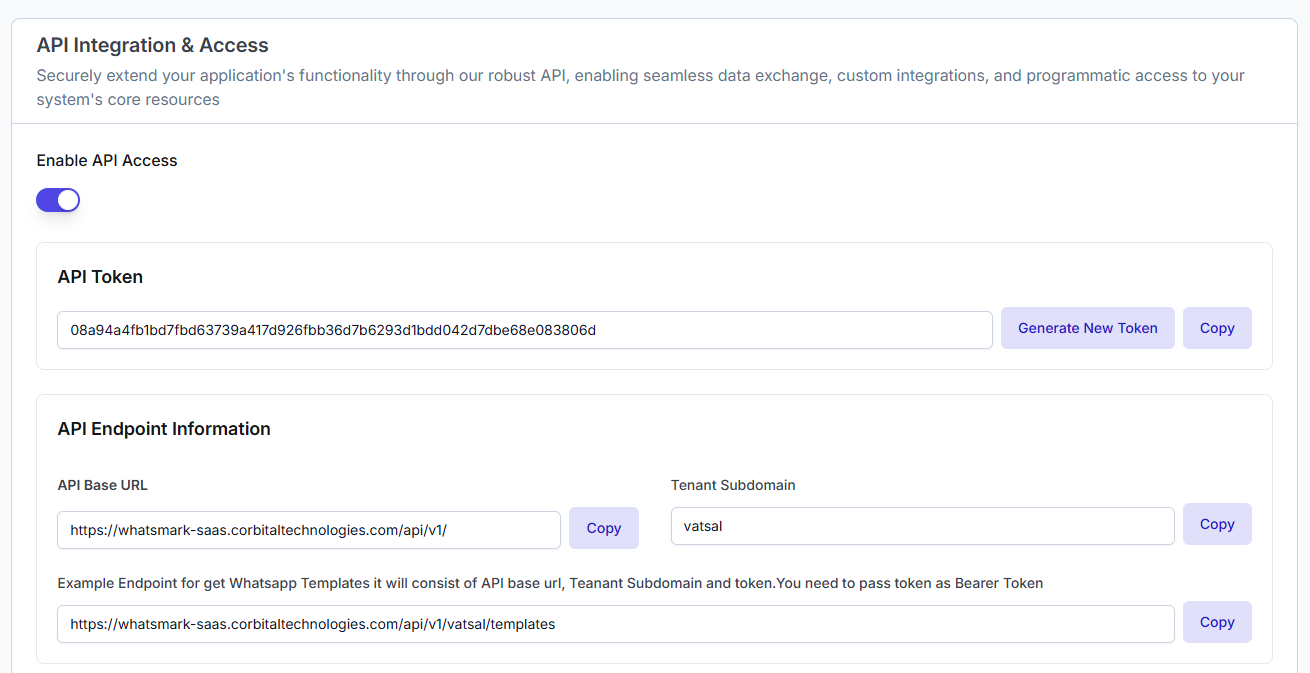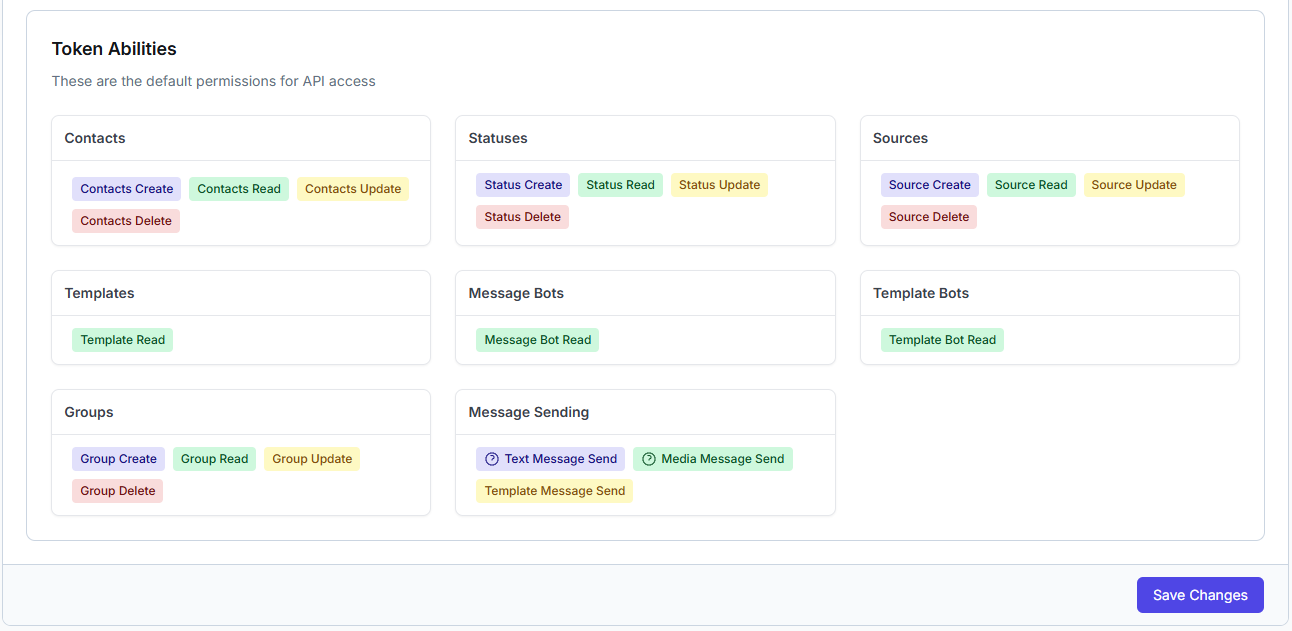API Management - API Integration & Access
API Integration & Access allows your application or software to connect directly with WhatsMark SaaS using a set of secure and well-designed interfaces (APIs). This means:
Securely extend your application's functionality Add new features or automate tasks in your own app by using WhatsMark’s API without compromising security.
Robust API The API is strong, reliable, and built to handle various operations smoothly.
Seamless data exchange Data flows effortlessly back and forth between your system and WhatsMark, keeping everything up to date automatically.
Custom integrations Create unique connections tailored to your specific business needs, linking WhatsMark with other tools or platforms you use.
Programmatic access to core resources Instead of using a manual interface, you can control and interact with important parts of WhatsMark (like contacts, messages, templates) through code, making workflows faster and more efficient.
Overview
This section enables users to:
- Enable or disable API access
- Generate and manage API tokens
- View API endpoint information
- Set access permissions (Token Abilities)
Enabling API Access
| Step | Description |
|---|---|
| 1. Enable API Access | Toggle the switch to enable API access on the settings page. |
| 2. Generate API Token | Click Generate New Token to create a new API authentication token. |
| 3. Copy API Base URL | Copy the base URL for API calls, usually: https://whatsmark-saas.corbitaltechnologies.com/api/v1/ |
| 4. Note Tenant Subdomain | Use your tenant subdomain (example: vatsal) in endpoint URLs. |
| 5. Save Changes | Save all your changes to activate the API integration. |

API Authentication
| Parameter | Details |
|---|---|
| API Token | Unique token generated for your tenant; acts as your API password. |
| Authentication | Use Bearer Token in the Authorization header for all API requests. |
Example Request Header
Authorization: Bearer YOUR_API_TOKEN_HERE
Content-Type: application/jsonAPI Endpoint Structure
| Element | Description |
|---|---|
| API Base URL | The root URL where all API requests are sent. |
| Tenant Subdomain | Your unique tenant identifier, which is part of the URL path to specify your workspace. |
| Complete Endpoint | Combination of the API Base URL + Tenant Subdomain + specific resource path. Used to access different API features. |
Example Endpoint for Getting WhatsApp Templates
To retrieve WhatsApp templates, use the complete endpoint like:
API Base URL: https://whatsmark-saas.corbitaltechnologies.com/api/v1/
Tenant Subdomain: vatsal
Complete Endpoint: https://whatsmark-saas.corbitaltechnologies.com/api/v1/vatsal/templates
Token Abilities (Permissions)
Permissions define what actions the API token can perform. Adjust carefully for security and functionality.
| Category | Permissions | Description |
|---|---|---|
| Contacts | Create, Read, Update, Delete | Manage contact information (add, view, modify, remove). |
| Statuses | Create, Read, Update, Delete | Handle status updates for contacts or campaigns. |
| Sources | Create, Read, Update, Delete | Manage sources of contacts or message data. |
| Templates | Read | Access WhatsApp message templates for sending messages. |
| Message Bots | Read | View and manage message bot configurations. |
| Template Bots | Read | View and manage template bot configurations. |
| Groups | Create, Read, Update, Delete | Manage contact groups for segmented messaging. |
| Message Sending | Text Message Send, Media Message Send, Template Message Send | Permission to send different types of WhatsApp messages. |